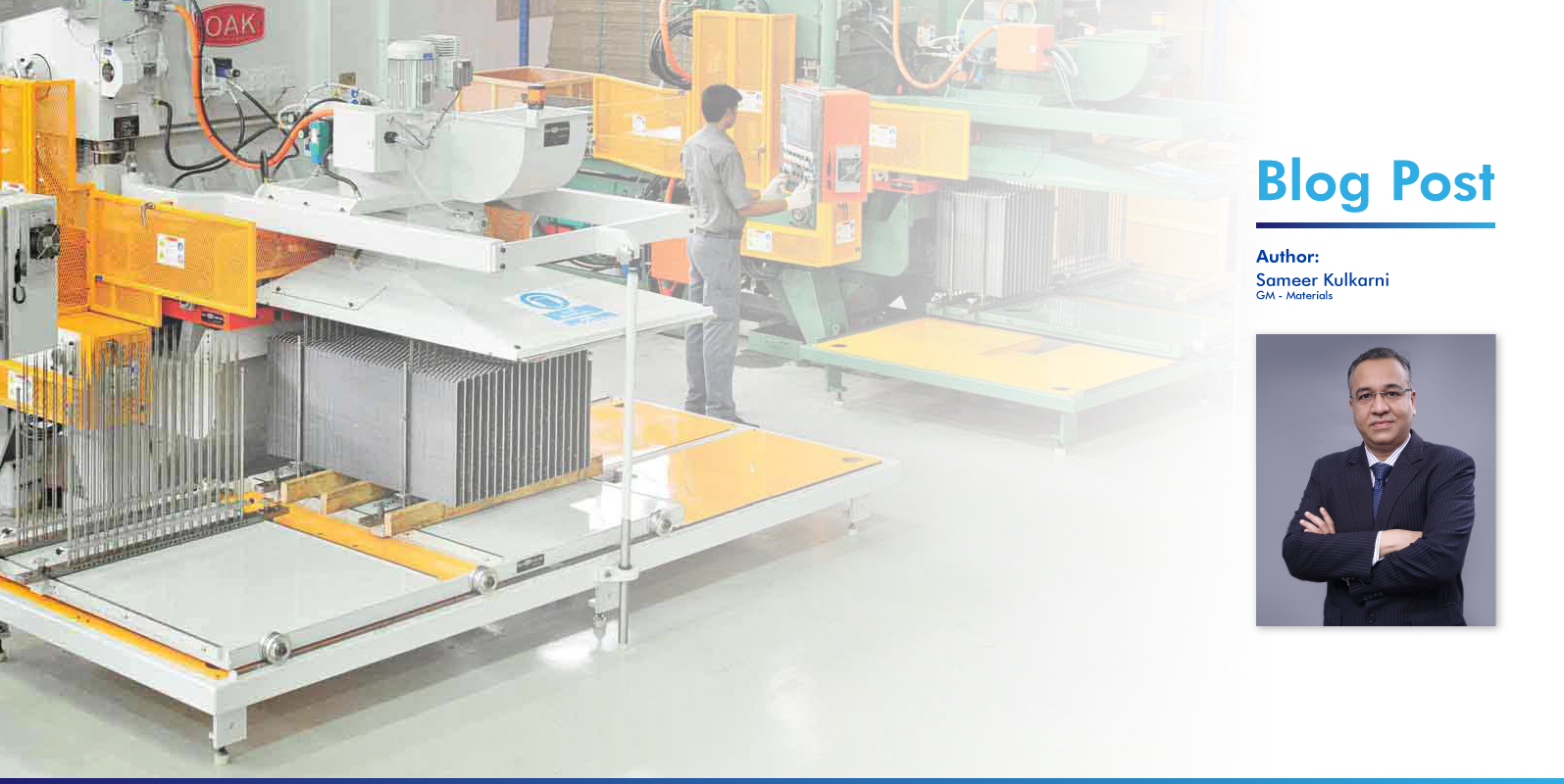Pandemic & Industry 4.0
Apr 26 2021

The origin of the term Industry 4.0 is a concept initiated in 2011, a high tech strategy project of the government of Germany to promote Industry computerization. It was believed that automation will be the game changer for the future. The way moving forward was optimization, configuration and diagnosis self-checking as well as self-correction mode.
Before 2020 Industry 4.0 was presumed to be an initiative for a limited Industries only. Digitization, automation, cloud computing, Internet of Things (IOT) were looked at as a high investment initiatives to projects and was also considered to reduce human dependence thereby eliminating jobs. The COVID-19 pandemic has changed that all. The current prevailing situation has reinforced the immediate need to look into digitization in a very serious manner in almost every aspects of our businesses.
The current circumstances have forced upon us to remote working, contactless operations, distancing ourselves and minimizing every human interface as possible. If an individual can work from home, the direct implications are reduced transportation expenses, let go expensive office space, lesser time spent on commuting, reduced office utility bills etc. Companies can now have the freedom to recruit experts from across the globe and need not bother about their relocation cost. It also meant avoiding high cost of living in the metros to work for any MNCs and other large firms.
Digitization, the core of Industry 4.0 is the key to speed, accuracy and consistency. As we focus on the trends of the Fourth Industrial Revolution like smart factory, predictive maintenance, 3D printing etc which are mainly centered on manufacturing, the use of smart sensors in agriculture is also a noteworthy achievement to improve crop production. There has been several other developments in the space of scientific research, healthcare, aviation and many other allied industries.
In the pre-pandemic era, the challenges slowed down the expanse of the fourth revolution. The challenges encountered were high economic costs involved in the adaptations of business module, lack of clarity as regards to the benefits, concerns on data safety and privacy, lack of global regulations and legal setup to safeguard intellectual property and data. The transition towards the fourth revolution was further slowed down due to lack of qualified personnel with adequate skill-sets.
The pandemic has brought in a revolutionary change in the way we lead our lives today. IOT has penetrated deep into every aspects of our lives. We see automation in lighting, air-conditioning, housekeeping and even entertainment. Our shopping experience have gone digital, even the cars we drive have gone smarter now. Machines can now conduct self-diagnosis and carry out the predictive and preventive maintenance.
The benefits of 4.0 Industrial revolution have now far outweighed the risks and challenges. Every function like research, manufacturing, supply chain, sales and marketing, are exploring different ways to optimize digitization and achieve automation. The essence lies in effective collaboration and integration from all parties. All the new product developments, services and concepts will be driven by digitization.
At Awal Gulf Manufacturing, our constant endeavor is to embrace technological advancement to the fullest and ride this digital wave to emerge as not only a regional market leader but also as a responsible innovative organization. We see distinct improvements in product innovation, sales promotions, and automation in manufacturing. These efforts will significantly bring meaningful business benefits.
About the author:
Sameer Kulkarni is a Mechanical Engineer with work experience spanning three decades. Sameer started his career with Tata Motors, India’s most loved automotive brand working at their Purchase Department. After a stint of six years at Tata Motors, Sameer moved to the Kingdom of Bahrain in 2000 to manage the purchasing function at Awal Gulf Manufacturing.